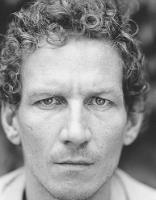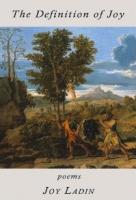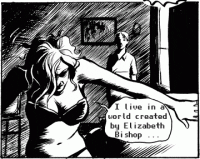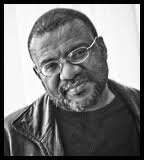June 12, 2012
Edited by David Sanders
Specimen Days
June 12, 2012
1759 – William Collins, English poet (Ode to Simplicity), dies at 37.
1788 – Johann A Cramer, prime minister/poet, dies at 65.
1888 – Carel Vosmaer, art historian/poet/editor (Neth Spectator), dies at 62.
1906 – Sandro Penna, Italian poet (d. 1977), is born.
1928 – Salvador Diaz Miron, Mexicans poet, dies.
1932 – René de Clerq, Flemish poet/writer (Book of Love), dies.
 Lady on a Streetcar
Lady on a Streetcar
You’d like to kiss your boy who doesn’t want to:
He’d like instead to look at life outside.
You’re disappointed then, but still you smile:
At least it doesn’t ache like jealousy,
Even though he already looks just like
The other who “to look at life outside”
Left you like this.
—Sandro Penna (1906–1977)
Poetry In The News
Michael Robbins Shakes Up Poetry World with “Alien vs. Predator”
Michael Robbins called from the road. He explained he was driving back to Chicago from Mississippi, headed for his new apartment in Andersonville, white-knuckling at the wheel of a U-Haul too big for him, a drumbeat of imminent freeway death pounding in his skull. “I’ve been scared for, like, five hours,” he said. “I got to get to a hotel. My cat’s freaking out, the cars are nuts …” Drivers were cutting him off, truckers were bearing down, he said. So he started talking to himself, conducting a one-man theological debate, asking if it’d be OK if, you know, a few people died: “Would I be justified not shedding a tear if they accidentally flipped?” Read more at the Chicago Tribune.
Pulitzer Prize-winner Trethewey Named U.S. Poet Laureate
 Natasha Trethewey, author of three poetry collections and winner of the Pulitzer Prize, was named on Thursday as the 19th U.S. poet laureate, becoming only the second Southerner appointed to the position. The Library of Congress, in announcing the appointment, said Trethewey would succeed Philip Levine and officially take up her duties in the fall, around the time her fourth collection, “Thrall,” is due to be published. Read more at Reuters.
Natasha Trethewey, author of three poetry collections and winner of the Pulitzer Prize, was named on Thursday as the 19th U.S. poet laureate, becoming only the second Southerner appointed to the position. The Library of Congress, in announcing the appointment, said Trethewey would succeed Philip Levine and officially take up her duties in the fall, around the time her fourth collection, “Thrall,” is due to be published. Read more at Reuters.
Tearful Ken Babstock Accepts Griffin Poetry Prize
 Ken Babstock wiped away tears as he accepted the $65,000 Griffin poetry prize, widely considered the world’s richest award of its kind. He thanked his wife, Laura, and four-year-old son, Samuel, while ruefully expressing a wish that the boy not follow in his father’s footsteps. “I hope you will read and love poetry. I hope you never write it. Get a real job,” said Babstock, 42, admitting that his career choice has been a tough slog at times. Read more at the Ottawa Citizen.
Ken Babstock wiped away tears as he accepted the $65,000 Griffin poetry prize, widely considered the world’s richest award of its kind. He thanked his wife, Laura, and four-year-old son, Samuel, while ruefully expressing a wish that the boy not follow in his father’s footsteps. “I hope you will read and love poetry. I hope you never write it. Get a real job,” said Babstock, 42, admitting that his career choice has been a tough slog at times. Read more at the Ottawa Citizen.
World Poetry
Russia Rules at BookExpo America: The Role of the Poet in Politics is Debated
 The Syrian poet Adonis (Ali Ahmad Said), one of the most celebrated Arab poets ever, accused France on Tuesday of “betraying the principles of the French revolution” by backing the “fundamentalist movements” constituted by the Arab Spring; he referred in particular to the Syrian revolution. The Paris-based Adonis said, “Whoever follows the current politics of France will see that it is betraying the principles of the French revolution.” Read more at Ahram Online.
The Syrian poet Adonis (Ali Ahmad Said), one of the most celebrated Arab poets ever, accused France on Tuesday of “betraying the principles of the French revolution” by backing the “fundamentalist movements” constituted by the Arab Spring; he referred in particular to the Syrian revolution. The Paris-based Adonis said, “Whoever follows the current politics of France will see that it is betraying the principles of the French revolution.” Read more at Ahram Online.
A Poet Returns Home to Afghanistan
The body of Ustad Khalilullah Khalili, one of Afghanistan’s greatest modern poets, was brought home to Afghanistan from Pakistan last month, and reburied following a ceremony at Kabul University. Khalili, a hero to to the Afghan Mujahedeen fighting the Soviets during the 1980s, lived his final years in exile in Pakistan, and died there in 1987, too early to see the Soviets driven from his country. Relatives feared his grave in Pakistan might be desecrated, following Taliban attacks on Sufi shrines in the country in recent years. Read more at MacLeans.
New Books
The Definition of Joy: Poems by Joy Ladin
 [Paperback] Sheep Meadow, 96 pp., $15.95
[Paperback] Sheep Meadow, 96 pp., $15.95
“Ladin draws the reader into a world of harsh truths, uncanny beauty, inspired erudition, ironic wit, and cadenced music . . . imagination rules, wedding poetic forms to unflinching meditations on human suffering, terror, love, and unbearable loss. Despite the ubiquity of evil and death in her poems, there is, in Yeats’s words, ‘a gaiety transfiguring all that dread.'” —Herbert Leibowitz
Água Viva by Clarice Lispector
[Paperback] New Directions, 220 pp., $14.95
A meditation on the nature of life and time, Água Viva shows Lispector discovering a new means of writing about herself, more deeply transforming her individual experience into a universal poetry. In a body of work as emotionally powerful, formally innovative, and philosophically profound as Clarice Lispector’s, Água Viva stands out as a particular triumph.
Song of the Departed: Selected Poems of Georg Trakl translated by Robert Firmage
[Paperback] Copper Canyon Classics, 184 pp., $17.00
Song of the Departed brings back into print poems written at the height of Georg Trakl’s career. Trakl boldly confronted the conflicts created by the pursuit of truth amidst the fallenness of the human condition, writing of the unspeakable that lies beyond language, creating poetry that is intensely personal and eerily beautiful. Included in this revised edition are several new translations and an introduction by the translator.
Recent Reviews
Micrograms by Jorge Carrera Andrade
by Donna Stonecipher
Susan Sontag, in her essay on Walter Benjamin and the melancholic temperament, “Under the Sign of Saturn,” considers Benjamin’s love of small things and the poetics of the miniature: “To miniaturize means to make useless,” she writes. “For what is so grotesquely reduced is, in a sense, liberated from its meaning—its tininess being the outstanding thing about it.” The miniature turns the user or observer back into a child (“love of the small is a child’s emotion”), whose imagination is unencumbered by the use value of things. Read more at Quarterly Conversation.
Guys & Dove
by William Logan
Mark Strand’s easy-going charm and labored whimsy have a Seventies feel, as if the Bee Gees had never retired. The prose poems in Almost Invisible tilt toward contrived fables and dopey meditations, at worst self-indulgent musings after the imagination has shut down for the day and at best Kafka lite. Strand has always been a misfit in American poetry, his sleight-of-hand surrealism only half embraced, his strongest emotion subject to puckish doubt. He’s a master of the throwaway line (and also the throwaway poem, but I’ve used that joke about Ashbery). Read more at the New Criterion.
Correspondences
Poetry at the Threshold
by Ben Lerner
Peter Gizzi’s poetry at once captures the flattening, the deadening, and the standardization of our televisual culture (“This is the snow channel / and it’s snowing”) and wakes us up, makes us “silly with clarity.” Through his poetry we become almost painfully attuned to the present, powerless to resist his injunction: “Be everywhere alive.” He can name with precision our medicated, mediated insensibility (consider the palindromic title of his earlier book Lonely Tylenol, a phrase condemned to eternally pace the room of itself), and then startle us out of anesthesia with the beauty of his singing. Read more at the Poetry Foundation.
First Drafts: Poetry
 by Jamie Quatro
by Jamie Quatro
A Conversation With Traci Brimhall, Amy Gerstler, Andrew Hudgins, and Timothy Liu
1. How do your poems come to you?
Traci Brimhall: They rarely come to me. Usually I have to go find them. They’re a bit wily like that and generally prefer midnight over noon and my office floor rather than my desk.
Read more at Ploughshares.
Elana Bell on Israel, Palestine and Poetry
by Samuel Johnson
I recently got a chance to talk with poet Elana Bell, the winner of the 2011 Walt Whitman Award, whose new book of poems Eyes, Stones addresses the Israeli/Palestinian conflict from a variety of perspectives. Eyes, Stones had its release last month, and Bell marked the event with a theatrical reading of her work at The Green Room in Brooklyn accompanied by an art auction to benefit grassroots peace efforts by non-profit Just Vision. Read more at Heeb Magazine.
Broadsides
Do Poets Really Care About Slams?
by James Bunting
For one reason or other, lately I’ve been having the same conversation: do poets really care about slams? It got me thinking because I help run the Hammer + Tongue Bristol arm — which features a monthly slam — and I’m a part of the team behind the National Team Poetry Slam run by Jack Dean. On top of that, I’ve competed in my fair share of slams over the last couple of years with varied success. This repeated conversation got me thinking about whether I care about slams. Ultimately, I do — it’s the competitive nature in me — but, I never mind losing or getting a low score. When I try to explain this to people I compare it to speed dating: the evening comprises a snippet view of a multitude of different poets and you, the audience, choose your favourite to see more of. It’s a great way to see lots of poets without having to see too much of someone you don’t like. And it’s a great way for poets to meet each other and get their names out. But, is putting a score on a piece of art wrong? Read more at the Huffington Post.
Poetry and Utopia
by Charles Simic
In 1972, I found myself on a panel whose subject was the poetry of the future. It was at the Struga Poetry Festival in Macedonia. I wasn’t scheduled to participate, but the American poet who was supposed to, W.S. Merwin, begged me to take his place, since he wanted to visit some monastery with his girlfriend. Being older, much more famous, and immensely admired by me, he couldn’t be refused and I went to the morning panel without any idea of what I was going to say. To my horror, the other panelists had come well-prepared, reading either from copious notes or as in the case of a poet from the Soviet Union, from a lengthy typewritten text that confidently predicted a golden age of poetry in a world turned Communist and living in harmony for the first time in human history. Read more at the New York Review of Books.
Drafts & Fragments
I Live in a World. . .

Envoi: Editor’s Notes
And Now a Word about our Sponsors
 Poetry News in Review has made its home at the Prairie Schooner website every week for the past six months, and my fervent hope is that it continues to do so. In thanks for their hospitality and general generosity of spirit, I want to offer a few of my precious pixels here to announce a major initiative that Prairie Schooner is undertaking. Under the leadership of Kwame Dawes (pictured), Prairie Schooner will be partnering with the University of Nebraska Press and other organizations around the world to establish the African Poetry Book Series. Beginning in January 2014, the imprint will publish four new titles by African poets each year, one of which will be a winner of a First Book Prize, and one, a new and selected volume by a major African poet. In addition, the series plans to publish an anthology every few years representing African regions, themes, and foci. This is an ambitious and worthwhile effort, which speaks to the good will of those involved in providing the means to bring the voices of an entire continent to those of us who sometimes have a difficult time hearing over the din of our own world. Make sure to stay tuned to Prairie Schooner’s website, blog, Facebook, and Twitter for further projects of this enterprising series.
Poetry News in Review has made its home at the Prairie Schooner website every week for the past six months, and my fervent hope is that it continues to do so. In thanks for their hospitality and general generosity of spirit, I want to offer a few of my precious pixels here to announce a major initiative that Prairie Schooner is undertaking. Under the leadership of Kwame Dawes (pictured), Prairie Schooner will be partnering with the University of Nebraska Press and other organizations around the world to establish the African Poetry Book Series. Beginning in January 2014, the imprint will publish four new titles by African poets each year, one of which will be a winner of a First Book Prize, and one, a new and selected volume by a major African poet. In addition, the series plans to publish an anthology every few years representing African regions, themes, and foci. This is an ambitious and worthwhile effort, which speaks to the good will of those involved in providing the means to bring the voices of an entire continent to those of us who sometimes have a difficult time hearing over the din of our own world. Make sure to stay tuned to Prairie Schooner’s website, blog, Facebook, and Twitter for further projects of this enterprising series.
—David Sanders